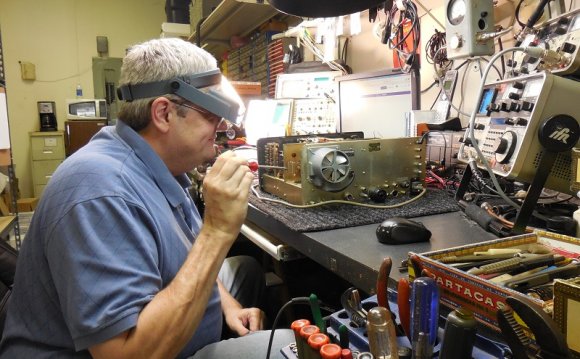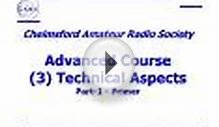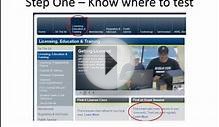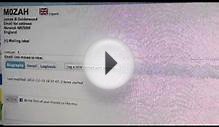
As of April 15, 2000, there are three classes of amateur radio licenses currently being issued to individual operators by the Federal Communications Commission for the United States Amateur Radio Service. There are also two other grandfathered license classes (Novice and Advanced) that are no longer being issued, but are still valid. Each class has a set of operating privileges. Generally speaking, higher license classes confer greater privileges in the HF, or high frequency, bands. Long distance communications are characteristic of the HF bands, because at those frequencies, radio signals can be refracted downward by the earth's ionosphere — in effect, bouncing between the sky and the ground over great distances.
The class of license issued is determined by the examinations passed by the applicant. Multiple-choice written examinations cover radio and electronics theory, operating practices, and the amateur radio rules and regulations. Prior to the World Radiocommunication Conference of 2003, an international agreement dictated that operating privileges in the HF bands could only be conferred upon hams who had demonstrated proficiency in the Morse code. Effective February 23, 2007, the FCC eliminated all requirements for Morse code testing to qualify for amateur radio licenses. Licenses are granted for ten year terms, and are renewable.
The license classes are:
Novice As of April 15, 2000, the FCC no longer issues new Novice class licenses. Current Novice licenses remain valid, and can be renewed indefinitely. Novice licensees have passed a Novice written exam and a 5 word-per-minute Morse code receiving test. Novices have very limited HF operating privileges and very limited VHF (very high frequency) privileges. Technician When I was first licensed in 1988, I passed both the Novice and the Technician written exams and a 5 wpm Morse code exam to earn a Technician license. That license conveyed all privileges in amateur radio bands above 30 MHz, e.g. VHF and above, as well as the Novice HF privileges. In 1991, the Morse code requirement was dropped to create an alternate entry-level license, without the HF privileges (although Techs who passed the 5 wpm Morse code test did have the HF privileges). As of February 23, 2007, with the dropping of all Morse code testing requirements, Technicians were granted the Novice HF privileges. The Technician written exam (which includes material previously covered by the now-obsolete Novice exam) is the only requirement for this license. Technician Plus With the creation of the no-code Tech in 1991, the term Technician Plus was coined to describe Technicians who passed the 5 wpm Morse code test. Tech Plus operators have the Novice HF operating privileges in addition to privileges above 30 MHz. This is equivalent to the privileges of the pre-1991 Technician class, and Techs who were licensed before February 14, 1991 are Tech Plus by definition. At first, Tech Plus was not a formal license class, but it later became one. In a move to simplify administration of the licensing system, the FCC stopped issuing new Tech Plus licenses in 2000, and existing Tech Plus licenses were converted to Technician class (without loss of HF privileges) upon modification or renewal. With the granting of HF privileges to all Technicians in 2007, Technician and Technician Plus operators had identical privileges. General Applicants must pass the Technician and General written exams. Between April 15, 2000 and February 23, 2007, a 5 wpm Morse code test was required; prior to April 15, 2000, a 13 wpm code test was required. Generals have additional HF operating privileges beyond those granted to Novice, Tech, and Tech Plus operators. Advanced As of April 15, 2000, the FCC no longer issues new Advanced class licenses. Current Advanced licenses remain valid, and can be renewed indefinitely. Advanced class operators have passed the Advanced written exam, in addition to the old requirements for General (Novice, Technician, and General written exams, and a 13 wpm code test). Advanced class operators have additional HF operating privileges beyond those of Generals. Amateur Extra Applicants must pass the Extra written exam (which includes material previously covered by the now-obsolete Advanced exam), in addition to the other written exams. Between April 15, 2000 and February 23, 2007, a 5 wpm Morse code test was required; prior to April 15, 2000, a 20 wpm code test was required. Extras get all amateur radio service operating privileges authorized in the United States.INTERESTING VIDEO












